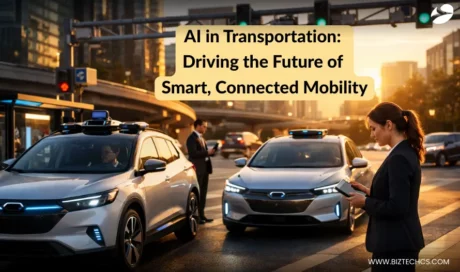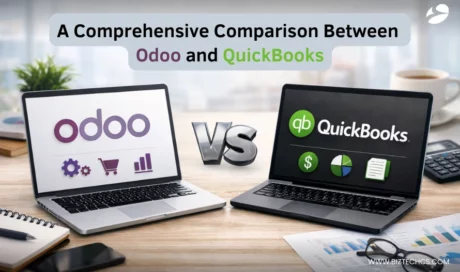AI Career Counseling: How Technology Helps Students Find the Right Path
5 min read
5 min read

Post-college job hunting stress is a familiar experience for every student. The initial phases of stepping out of the campus comfort zone and entering adulthood often get overwhelming. This leads them to a career counselor’s office.
Traditionally, counselling involves a long session where counselors provide guidance based on students’ strengths and resumes. However, the present-day scenario no longer allows that luxury. The ratio of students to counselors forces them to rush through the process even if they don’t want to.
The sessions that should be transformative conversations have become transactional checkboxes. “Your resume looks fine. Have you checked the job board? Good luck.” Next student, please. There’s no time for the deep exploration students desperately need. No bandwidth to discuss emerging industries, unconventional career paths, or how to position unique skill combinations.
Meanwhile, the career landscape is transforming exponentially. The World Economic Forum projects that 170 million new jobs will emerge over the next five years. How can counselors guide students toward opportunities they’re still learning about themselves?
Students graduate with skills that do not align with current market demands. The gap between what they learn and what employers seek continues to grow, and nobody wins.
So yes, this article is for those who think technology should tackle this tedious “stuff”. Meaning, the hours-long resume reviews, student skills assessments, and many such processes should be automated. Why? So counselors can focus on having one-on-one sessions, offer strategic advice, and help students navigate the complicated decisions that algorithms can’t resolve.
With artificial intelligence, these “what ifs” can turn into a reality. ai/ml development services cannot replace human guidance, but it can accelerate the process with its advanced functionalities. It can analyze thousands of career trajectories simultaneously, match student profiles against real-time labor market data, and provide personalized guidance.
This will eliminate mundane record-keeping and analyzing tasks, thus allowing counselors to focus on student needs without exhausting themselves.
Traditional career counseling operates under severe constraints that limit effectiveness. Counselors manage impossibly large student populations in public universities. This makes individualized attention nearly impossible. Students receive standardized recommendations, independent of their unique strengths, interests, and market opportunities.
The knowledge gap presents another critical challenge. Career counselors cannot possibly track real-time changes across hundreds of industries. By the time counselors learn about new opportunities, the market has already shifted again.
Here are some of the leading challenges that BiztechCS identified. We also added how an AI-powered platform can transform the challenges into business advantages.

Counselors utilize decades-old personality tests and a few practiced questions, which help them gather only surface-level details. Some may call it a tried and tested process that has been in practice for ages. We call it ancient. It doesn’t capture the nuanced roles of cognitive abilities and emotional intelligence that play a huge role in career satisfaction.
Peak employment seasons become a problem due to lack of scalability. Students who need guidance the most get lost in the crowd and don’t receive proper counseling. First-generation students often miss opportunities due to a lack of knowledge on how to navigate the system effectively.
AI Solution: Scalable Intelligent Personalization
Student career development with ai/ml development services can address these limitations through continuous and adaptive learning. A modular, AI-powered platform designed to manage the university-sized massive traffic can simultaneously guide over 10,000 students.
The dashboard will consolidate all the information and findings for better recommendations. What is the student’s academic performance? How quickly do they understand a particular concept? Where do their interests lie? AI gathers and connects these dots to generate better opportunities, and that too, faster than human counselors.
For example,
A computer science student goes to a counselor and gets the usual “become a developer” advice. But when he tries the AI platform for advice, it evaluates his strengths and weaknesses. Let’s say he doesn’t like theory but excels in project-based learning and UI designs. The platform will identify this and direct him towards UI/UX job profiles.
This is how internship and job matching with AI transforms the search process. Would a human counselor be able to make this connection? Maybe yes, but after multiple one-on-one sessions. An AI platform can do that in hours if not minutes.
Project Manager Tip: For a comprehensive view, implement ai/ml development services that integrate multiple data sources, such as learning management systems, student information systems, and external market APIs. This will provide a detailed account of career opportunities that align best with students’ capabilities. This further enhances the results of internship and job matching with AI.
Today, career preparation is not limited to just knowing specific skill sets or having theoretical knowledge of the said field. The preparation typically involves designing compelling resumes, writing persuasive cover letters, and exceptionally good interview performance. Traditional counseling hit its limitations here.
Resume reviews? Done at a glance, just a few weeks before submission dates. Mock interviews are a rarity and don’t even cover the industry-specific nuances. It is generic, the same for everyone, in different fonts and styles.
Today, even an entry-level job opening gets hundreds of applications. Recruiters scan them through their AI tools first and then look at the ones that are filtered by the system. This is why it is important to make sure that the resume is both AI and human-friendly.
AI Solution: Comprehensive Application Intelligence
AI resume and interview assistance revolutionizes application preparation through continuous, iterative improvement. Natural language processing algorithms analyze resume content against millions of successful examples from specific industries and roles.
The ai application development services identifies missing keywords and suggests stronger words to optimize the resume for AI compatibility. Students receive real-time feedback on the same dashboard without going anywhere else. An AI platform employs continuous iteration and offers innovative suggestions based on reliable data.
Imagine an AI platform that conducts mock interviews and provides a foolproof performance assessment. It will ask industry-specific questions, analyze verbal responses, and provide in-depth feedback. It will deliver consistency in assessment, build student confidence, and provide key behavioral insights.
The AI resume and interview assistance solution learns industry-specific expectations automatically. It analyzes successful ai application development services and interviews across sectors. A student applying to creative agencies receives different guidance than one targeting financial institutions. This contextual intelligence ensures recommendations align with actual employer expectations.
Finding relevant opportunities still remains frustratingly inefficient as students browse dozens of job boards, company websites, and university portals. A lack of proper understanding of the relevant field and its subdomains often leads to missed opportunities. Many qualified candidates never discover roles perfectly suited to their skills.
This mainly occurs due to a lack of proper knowledge and limited resource availability. A solution focused on student career development with ai/ml development services can adapt to a rapidly evolving market, but a human counselor cannot. No matter how talented a counselor is, they still won’t be able to keep up with everything happening across multiple industries.
AI Solution: Intelligent Opportunity Discovery
Student career development with ai application development services employ sophisticated algorithms that understand semantic relationships beyond simple keyword matching. The recommendation engines continuously scan opportunities across multiple platforms, like job boards and company sites. ML models score them against individual student profiles, presenting ranked recommendations with clear explanations on their dashboards.
Internship and job matching with AI solutions reduces time-to-fill metrics and improves candidate quality. Students receive opportunities before general announcements, which provides them with a competitive advantage. Universities demonstrate value by facilitating successful placements powered by an AI-powered platform customized for their infrastructure.
Explore how internship and job matching with AI can replace days of tedious processes with easy-to-follow, information-driven tasks.
Traditional counseling often functions with a limited knowledge base and foresight. The lack of a proper vision of one’s career trajectory may lead to severe blind spots that may not become apparent until years later. It doesn’t account for the dynamic course of the career fostered by digital advancements and the evolving employment market.
This is one of the significant failures of traditional counseling, as it cannot prepare students for their long-term success. This is where an AI-powered solution can be of significant advantage. With advanced technologies, it offers data-driven insights based on past information and future estimates, and helps both counselors and students.
AI Solution: Dynamic Career Trajectory Planning
When institutions invest in getting a platform for student career development with AI, the focus shifts from short-term knowledge to long-term foresight. Predictive modeling helps envision and plan career dynamics over the years. Machine learning algorithms analyze historical career progression patterns across industries, identifying common pathways, successful pivot points, and skill acquisition sequences.
For instance, a student interested in marketing may show interest in exploring future opportunities. All that is needed is to share their capabilities, strengths, domain interests, etc. on their dashboard, and the platform will take care of the rest.
It will make all the required information available on the student dashboard, from the essential skillset to relevant courses. The dashboard will also show their growth curve in the domain. Gathering this information in a few minutes or hours is not humanly possible, but with AI, well, these opportunities become just the tip of an iceberg.
Despite the benefits, many stakeholders are concerned about ai ml development integration at the initial point of conversation. They often ask, “What if the AI model employed to guide students towards the right career choice ends up providing wrong information and misleads them instead of helping them?”
This is called AI hallucination, where AI tools confidently give out the wrong information, believing it to be correct. Given how AI integration will directly impact students’ career profiles, it is a valid concern. But it can be resolved by employing a hybrid system.
This means creating an ecosystem where the AI platform does the majority of the weightlifting, but with human oversight. Which means? All the auto-generated suggestions are first reviewed by counselors and then are passed to the students.
Project Manager Tip: When developing the ai ml development dashboard, make sure to establish feedback loops for students and counselors to flag inaccuracies. This approach will establish regular checkups to ensure the system’s optimal health and maintain oversight on sensitive decisions.
We aim to address these operational gaps with a viable AI solution that is easy to navigate, connects all essential touchpoints, and provides relevant, data-driven insights. Here’s how we envision a competent AI-powered career counseling platform to streamline the whole process.

At BiztechCS, we follow a strategic method for AI model training and deployment. This helps the final product align with the client’s unique workflow.
Building effective AI resume and interview assistance platforms requires sophisticated technical architecture that balances multiple concerns. This begins with a comprehensive data infrastructure capable of ingesting information from disparate sources.
Data is the most important element for AI model training. This is why our team analyzes the structured and unstructured data to employ ETL pipelines. The data from various sources is converted into standardized formats for ML models to process.
Another bigger concern is data security throughout the counseling process, which is addressed through multiple layers of security implementation. Our team employs end-to-end encryption, role-based access control, and audits to ensure data integrity.
BiztechCS leverages microservices architecture to build scalable career counseling platforms. This approach decomposes the whole ecosystem into independent services, such as student profile management, opportunity matching, resume analysis, and interview simulation. Each service operates autonomously but is converged to a single dashboard for easy access.
To explain it with an example, internship and job matching with AI functionality utilizes hybrid algorithms that combine collaborative filtering, content-based filtering, and knowledge graphs. And the model is fine-tuned on career counseling corpora, which improves their domain-specific performance.
Selective user access is determined by the user’s role in the whole lifecycle. For instance, a counselor would be able to access all student data on their dashboard. While students will be able to access all the required information, from resume assessment to job application journey, on one dashboard.
BiztechCS approaches implementation through carefully managed phased processes. Our team starts from high-priority departments and gradually shifts to the other ones. The priority is defined based on the discussion with the stakeholders and their concerns.
Post-deployment technology handles everything, and tasks shift from manual to automated. Ideas like ai ml development resume and interview assistance, ML-based opportunity screenings, etc., become a reality. How does this help? Well, counselors go from hours of data gathering to well-informed sessions.
Pilot programs demonstrate value before being deployed on a broad scale. BiztechCS typically implements the solution for a single department, gathering metrics on placement rates, student satisfaction, and counselor productivity. Success stories from early adopters become powerful catalysts for change.
Here, many stakeholders question What do we do if pilot results don’t meet expectations? How do we recognize whether it’s a technical issue or a management problem?
We set up a system to monitor both technical performance and adoption metrics individually. Low engagement despite good technical results indicates management issues. Poor outcomes despite high usage suggests technical refinement. We analyze usage patterns before deciding whether to shift, refine, or halt.
Defining success metrics guides development priorities and proves ROI. BiztechCS collaborates with institutions to establish comprehensive measurement frameworks. Leading indicators track student engagement on the platform, including the number of questions asked and opportunities explored. These metrics provide early signals about adoption and usability.
Outcome metrics measure ultimate impact. Placement rates within six months of graduation serve as clear indicators of success. Time-to-placement shows efficiency improvements. Starting salary comparisons demonstrate economic value. Survey data captures student satisfaction and confidence levels. Counselor productivity metrics prove operational efficiency gains.
The platform incorporates analytics dashboards showing real-time performance across these dimensions. Administrators identify which services deliver the most value and where students struggle. A/B testing frameworks enable continuous optimization. The team tests different recommendation algorithms, interface designs, and engagement strategies, implementing improvements based on data rather than assumptions.

The career counseling landscape faces unprecedented challenges that traditional approaches cannot overcome. Student populations continue to grow, while counselor resources remain stagnant. Career paths multiply and evolve rapidly. Here, students need more sophisticated guidance than overwhelmed human counselors can provide alone.
Artificial intelligence offers transformative solutions when implemented thoughtfully. These solutions don’t replace human counselors, they amplify their effectiveness. Technology handles time-consuming tasks like opportunity screening and resume optimization. Counselors focus on emotional support, complex decision-making, and strategic guidance where human wisdom remains irreplaceable.
Implementation requires careful attention to technical architecture, change management, and continuous improvement. BiztechCS brings expertise across all these dimensions. We design resilient SI solutions that streamline every step of the process. Our approach balances immediate value delivery with long-term flexibility.
The future of career counseling combines human empathy with algorithmic intelligence. The question isn’t if your institution will adopt these approaches; it’s whether you’ll lead or follow competitors.
Take the first step toward transforming career services at your institution and power student career development with ai application development services. See how one modern technology can completely shift your counseling ecosystem.

Artificial Intelligence (AI)
124
By Nandeep Barochiya

Odoo
212
By Uttam Jain

Artificial Intelligence (AI)
416
By Nandeep Barochiya